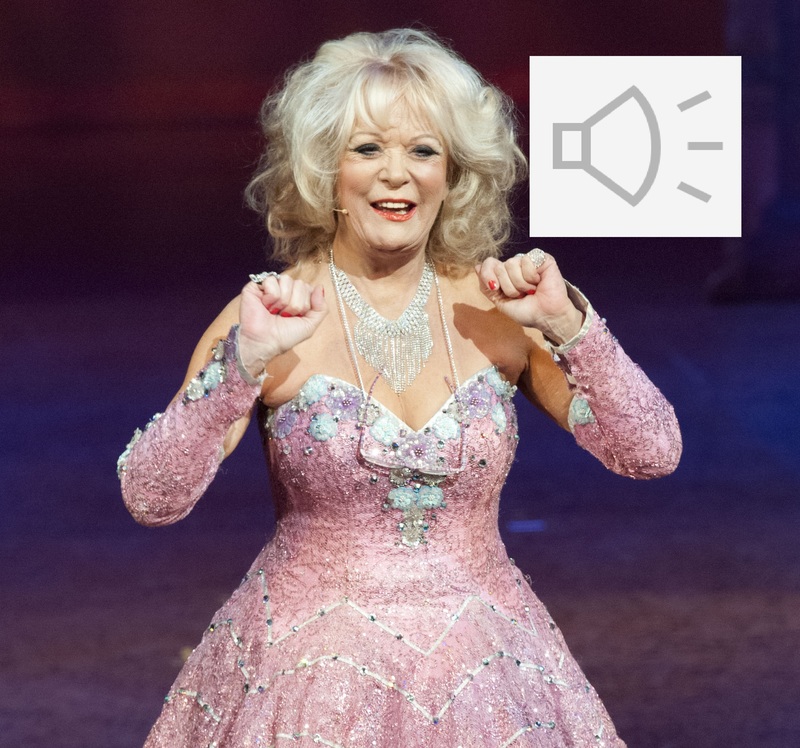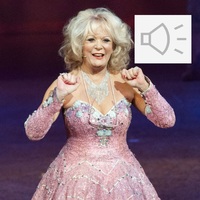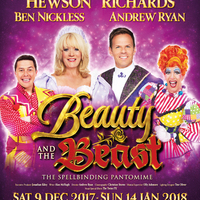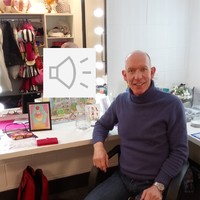Title
Sherrie Hewson Interview: 1970s Nottingham
Date
11 January 2018
Description
Oral history interview with Sherrie Hewson, star of 2017 Pantomime 'Beauty and the Beast' and Nottingham born and bred.
What's the story?
Sherrie Hewson is one of our most well-known actors and presenters. Her TV work includes roles on Coronation Street, Crossroads, Emmerdale and Benidorm.
She has been a panellist on lunchtime chat show Loose Women and in 2015, she came sixth place in Celebrity Big Brother.
Sherrie was born in Nottingham growing up in Burton Joyce in a show-business family. Her father was a singer and her mother was a model.
She began performing at the age of six, touring the UK's theatres in revues and later was granted a scholarship to attend the Royal Academy of Dramatic Art.
In this interview she describes Nottingham in the 1970s and how the city changes, but the Theatre Royal is ever-present:
All your changes in Nottingham, here, happened like they all did everywhere in the 70s. You know all the dreadful changes at Nottingham, I should say. You probably don’t remember The Flying Horse. The Flying Horse was a hotel. The arcade was the hotel and it was a beautiful hotel. When they took that away, we all went crazy.
Because my mother had a shop in Hockley, called Joy’s and when the Council decided to put double yellow lines down, we all went to the Council and said “you can’t do this, you’re going to kill every shop”, and they did and they killed every shop in Hockley. And I know it’s paved now, and my mother’s shop is boarded up.
But the Flying Horse, it was a wonderful hotel. I remember sitting in there. It must have been late 70s when they took it away and made it a shopping centre or something. So all your changes happened a long time ago. I guess you’re changing now, every day, because you’re full of students. Don’t get me started on that!
But this theatre’s never changed. It’s never changed. The only thing that changes is the restaurant. It franchises out. It stays the same, yes. Most old theatres in this country do. They try to keep them. Now we’ve lost the 60s, 70s. Well, 50s, 60s and 70s, they were the worst period for deciding you were going to knock every single thing down. We do protect now and I’m thrilled about that. This will always be protected. It might always need millions spent on it because it’s so old, but it will always be protected now, so in 50 years’ time, a hundred years’ time, it will still be standing there and people will still be coming to it, flocking to it. It won’t be what we remember, but it will still be standing there.
She has been a panellist on lunchtime chat show Loose Women and in 2015, she came sixth place in Celebrity Big Brother.
Sherrie was born in Nottingham growing up in Burton Joyce in a show-business family. Her father was a singer and her mother was a model.
She began performing at the age of six, touring the UK's theatres in revues and later was granted a scholarship to attend the Royal Academy of Dramatic Art.
In this interview she describes Nottingham in the 1970s and how the city changes, but the Theatre Royal is ever-present:
All your changes in Nottingham, here, happened like they all did everywhere in the 70s. You know all the dreadful changes at Nottingham, I should say. You probably don’t remember The Flying Horse. The Flying Horse was a hotel. The arcade was the hotel and it was a beautiful hotel. When they took that away, we all went crazy.
Because my mother had a shop in Hockley, called Joy’s and when the Council decided to put double yellow lines down, we all went to the Council and said “you can’t do this, you’re going to kill every shop”, and they did and they killed every shop in Hockley. And I know it’s paved now, and my mother’s shop is boarded up.
But the Flying Horse, it was a wonderful hotel. I remember sitting in there. It must have been late 70s when they took it away and made it a shopping centre or something. So all your changes happened a long time ago. I guess you’re changing now, every day, because you’re full of students. Don’t get me started on that!
But this theatre’s never changed. It’s never changed. The only thing that changes is the restaurant. It franchises out. It stays the same, yes. Most old theatres in this country do. They try to keep them. Now we’ve lost the 60s, 70s. Well, 50s, 60s and 70s, they were the worst period for deciding you were going to knock every single thing down. We do protect now and I’m thrilled about that. This will always be protected. It might always need millions spent on it because it’s so old, but it will always be protected now, so in 50 years’ time, a hundred years’ time, it will still be standing there and people will still be coming to it, flocking to it. It won’t be what we remember, but it will still be standing there.
Type
Oral interview
Location of item
Theatre Royal & Royal Concert Hall
Rights
Theatre Royal & Royal Concert Hall
Contributor
Interviewers: Diane Jones & Jennifer Sherwood
Transcriber: David Chilton
Transcriber: David Chilton



